Yucatan Mexico welcomes you with open arms, offering a vibrant mix of ancient Mayan history, stunning natural beauty, and a thriving LGBTQ+ scene. Are you looking for the best gay travel tips to experience the ultimate vacation? Gaymexico.net is your premier resource for planning an unforgettable trip, providing insider information on gay-friendly destinations, exciting events, and welcoming accommodations. Let’s explore Yucatan’s hotspots, from its historical sites to its turquoise waters, ensuring your journey is both exciting and safe.
1: Discover the Allure of Chichen Itza
 Chichen Itza Yucatan Peninsula Mayan Ruins
Chichen Itza Yucatan Peninsula Mayan Ruins
Are you ready to explore one of the New Seven Wonders of the World? Chichen Itza, a UNESCO World Heritage site, stands as a testament to the Mayan civilization’s advanced astronomical and mathematical knowledge. Welcoming around 1.4 million visitors annually, it ranks as the region’s second most visited Mayan ruin.
Answer: Absolutely! This ancient city, once a prominent hub in Central America for over a millennium, owes its location to the deep cenotes that provided fresh water. Today, the site covers 5 square kilometers, showcasing impressive stone buildings amid lush forests.
The Temple of Kukulcan, or El Castillo, is particularly famous and frequently photographed. Yet, decades of excavation have revealed that the entire site holds remarkable treasures.
LGBTQ+ Consideration: While the site is historically significant, LGBTQ+ travelers should be mindful of public displays of affection, as cultural norms in more rural areas can be conservative.
2: Marvel at the Pink Waters of Las Coloradas
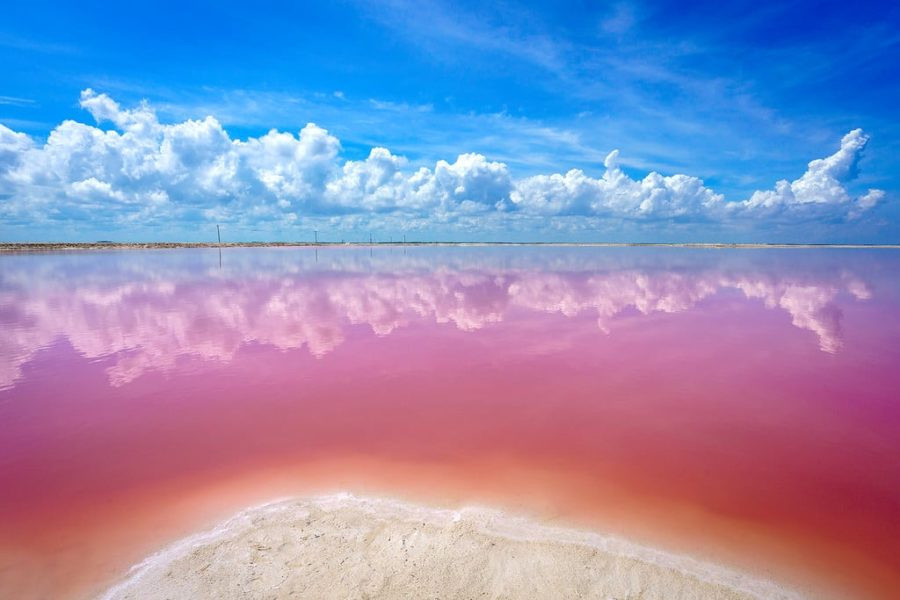 Las Coloradas Pink Lake Yucatan Peninsula Flamingos
Las Coloradas Pink Lake Yucatan Peninsula Flamingos
Have you ever seen a lake so pink it looks like it belongs in a dream? In the Ría Lagartos Biosphere Reserve, about 3 hours from Cancun, lies a surreal landscape where seawater transforms into a vibrant pink hue.
Answer: Yes, the pink color results from the industrial-scale salt production in Las Coloradas. As water evaporates, it increases salinity, leading to an explosion of red algae, plankton, and brine shrimp, which tint the water reddish-pink.
Visitors can walk along the shores, capturing breathtaking photos of this unique phenomenon. Interestingly, this is also why flamingos are pink! While swimming is no longer allowed, the photo opportunities are endless.
LGBTQ+ Consideration: Las Coloradas is an excellent spot for memorable photos. Consider visiting during off-peak hours to avoid crowds.
3: Swim with Sea Turtles in Akumal
 Akumal Beach Snorkeling Sea Turtles Mexico
Akumal Beach Snorkeling Sea Turtles Mexico
Want to swim alongside gentle sea turtles? Akumal Beach, just 30 minutes south of Playa del Carmen, offers the chance to swim with three different species of sea turtles in its shallow, blue-green waters.
Answer: Yes, Akumal is known for its sea turtle population. To help preserve the area, certain rules have been implemented, such as the requirement to wear a life jacket (available for rent) and the presence of lifeguards patrolling the water.
Organized snorkeling tours are also available, providing a guided experience to see these magnificent creatures up close.
LGBTQ+ Consideration: This activity is perfect for LGBTQ+ travelers looking for a serene and eco-friendly experience. Be respectful of the marine life and follow the guidelines to ensure their protection.
4: Embark on a Journey Aboard the Mayan Train
 Mayan Train Yucatan Peninsula Tourism
Mayan Train Yucatan Peninsula Tourism
Excited about exploring more of Southern Mexico? The Tren Maya (Mayan Train), a multi-billion dollar tourism project, is designed to improve access to many scenic destinations.
Answer: Yes, the Mayan Train is now operational, connecting Cancun to Palenque with stops in beautiful colonial towns like Valladolid, Merida, and Campeche. The train also stops at Chichen Itza. A trip from Cancun to Merida costs about $50 USD and takes 3.5 hours.
Other sections of the route, such as those to Tulum and Calakmul, are still under construction.
LGBTQ+ Consideration: The Mayan Train offers a comfortable and convenient way to explore various destinations, including LGBTQ+-friendly cities.
5: Discover the White City of Merida
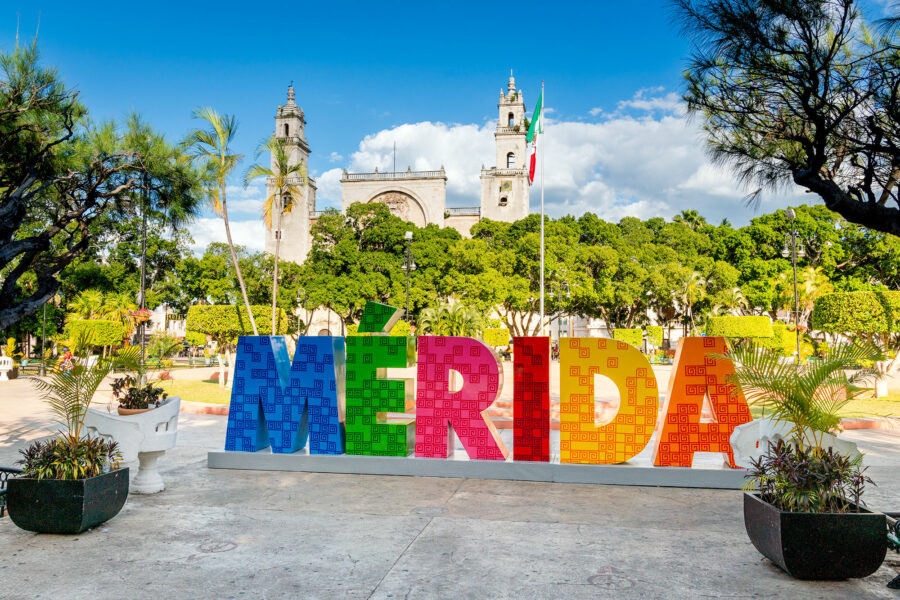 Merida Mexico Central Park Tourist Destination
Merida Mexico Central Park Tourist Destination
Ready to explore a city with colonial charm? Merida, the capital of Yucatan state, is known as “the white city” due to its liberal use of white limestone in its architecture.
Answer: Absolutely! The city’s architecture reflects its colonial history, with broad streets and high rooftops creating an uncrowded feel. It’s an ideal base for exploring the peninsula.
Nearby, you’ll find Mayan ruins like Uxmal and large flocks of pink flamingos at Celestun Biosphere Reserve. Merida is also famous for its locally made Mexican hammocks, a 700-year-old tradition in the Yucatan Peninsula.
LGBTQ+ Consideration: Merida is known for its welcoming atmosphere and growing LGBTQ+ scene. Several boutique hotels and guesthouses cater to gay travelers, and the city hosts LGBTQ+ events.
6: Swim with Whale Sharks at Isla Holbox
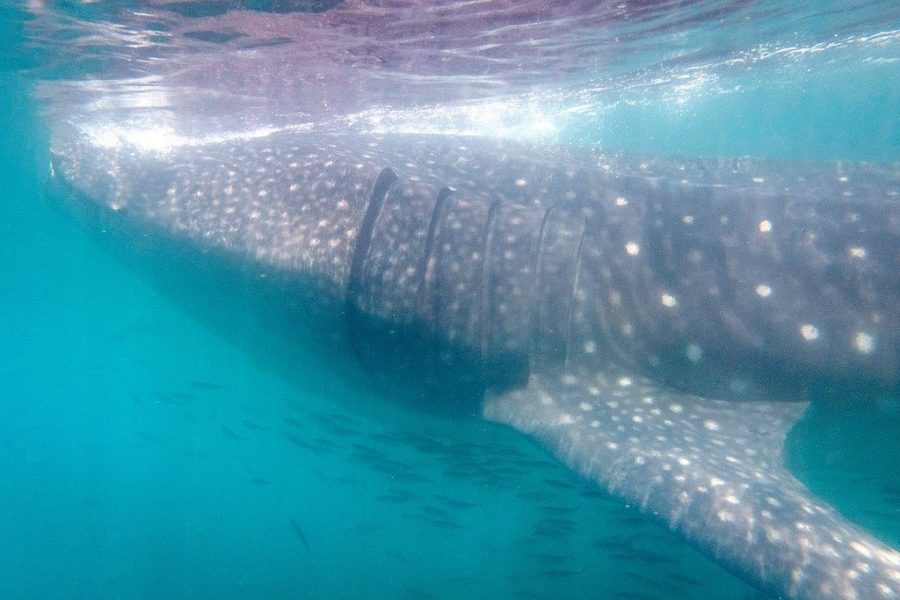 Whale Sharks Mexico Ocean Adventure
Whale Sharks Mexico Ocean Adventure
Looking for a unique aquatic adventure? You can swim with whale sharks, the largest fish in the ocean, growing up to 40 feet long and weighing up to 20,000 pounds.
Answer: Yes, whale sharks are plankton feeders, so there’s no need to worry about being eaten. Swimming next to these gentle giants is an awe-inspiring experience.
Whale shark snorkeling trips can be organized from Cancun, but a trip from Isla Holbox, a small island paradise off the Yucatan Peninsula’s coast, is highly recommended for a more adventurous experience.
LGBTQ+ Consideration: Isla Holbox offers a laid-back and accepting environment. Several eco-friendly tours are available, promoting sustainable tourism.
7: Explore Izamal, the Yellow Town
 Izamal Mexico Horse Buggy Transportation
Izamal Mexico Horse Buggy Transportation
Intrigued by cities with unique color schemes? Izamal is known for its deep golden yellow buildings, painted for Pope John Paul II’s visit in 1993.
Answer: Yes, almost every major building in Izamal is painted a golden yellow. The town is built on hills that were once Mayan pyramids, and many residents still speak the Mayan language.
One large pyramid overlooks the town and is open for climbing. Like Merida, Izamal is designed to be walkable, but you can also hire horse-drawn carriages to get around.
LGBTQ+ Consideration: Izamal provides a glimpse into traditional Mexican culture. While it’s a smaller town, the welcoming atmosphere makes it a pleasant visit for LGBTQ+ travelers.
8: Dive into the Crystal-Clear Cenotes
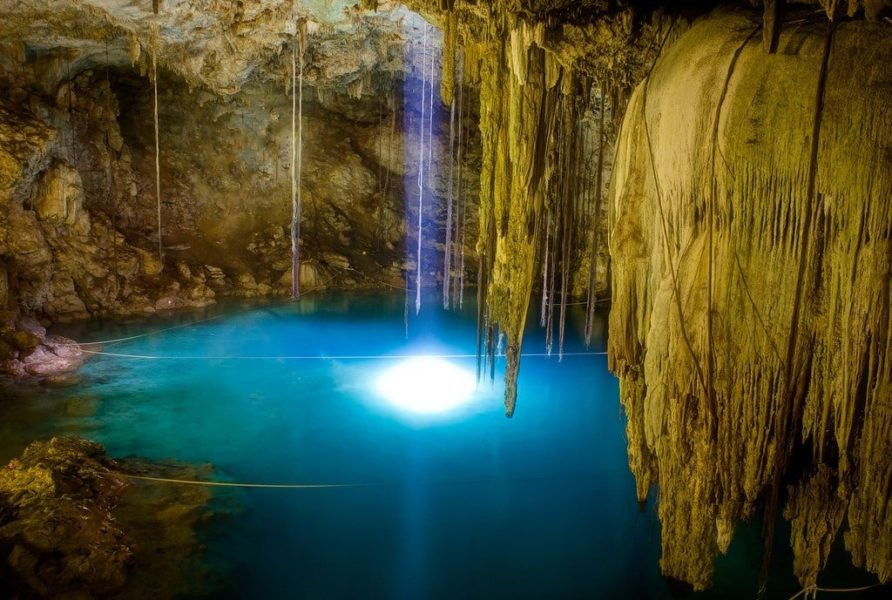 Cenotes Yucatan Peninsula Natural Swimming Holes
Cenotes Yucatan Peninsula Natural Swimming Holes
Seeking a refreshing way to cool off? Cenotes are underground caves filled with fresh water, perfect for swimming. The Yucatan Peninsula has around 6000 of these natural swimming holes.
Answer: Yes, cenotes are created when limestone bedrock collapses, revealing underground rivers. Some popular cenotes include Dzitnip, Azul, Dos Ojos, and La Noria.
Adventurous travelers can also explore these underwater caves through scuba diving, provided they are certified PADI divers.
LGBTQ+ Consideration: Cenotes offer a unique and natural experience. They’re ideal for LGBTQ+ travelers looking to connect with nature and enjoy a refreshing swim.
9: Experience the Culture of Valladolid
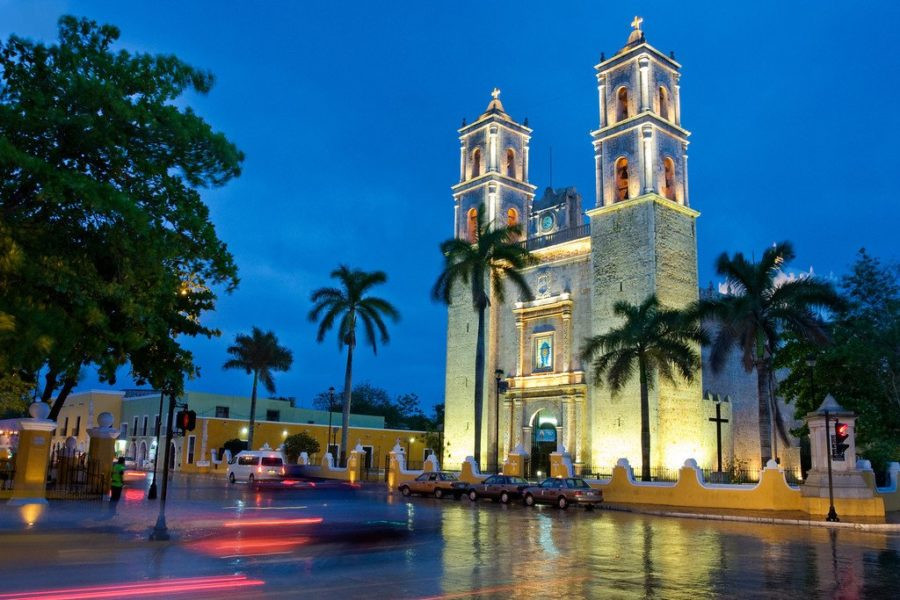 Valladolid Yucatan Mexico San Gervasio Church
Valladolid Yucatan Mexico San Gervasio Church
Looking to immerse yourself in Yucatecan culture? Valladolid is a colonial city built on an ancient Mayan settlement, featuring classic Spanish-looking buildings and traditional Maya restaurants.
Answer: Yes, Valladolid is a great base for exploring the Yucatan Peninsula, with affordable accommodation and proximity to Chichen Itza.
The Yucatecan food is exceptional, with must-try dishes like Cochinita Pibil (pulled pork) and Relleno Negro De Pavo (black turkey soup).
LGBTQ+ Consideration: Valladolid is becoming increasingly popular among LGBTQ+ travelers. Its colonial charm and welcoming locals make it a comfortable destination.
10: Party in Cancun
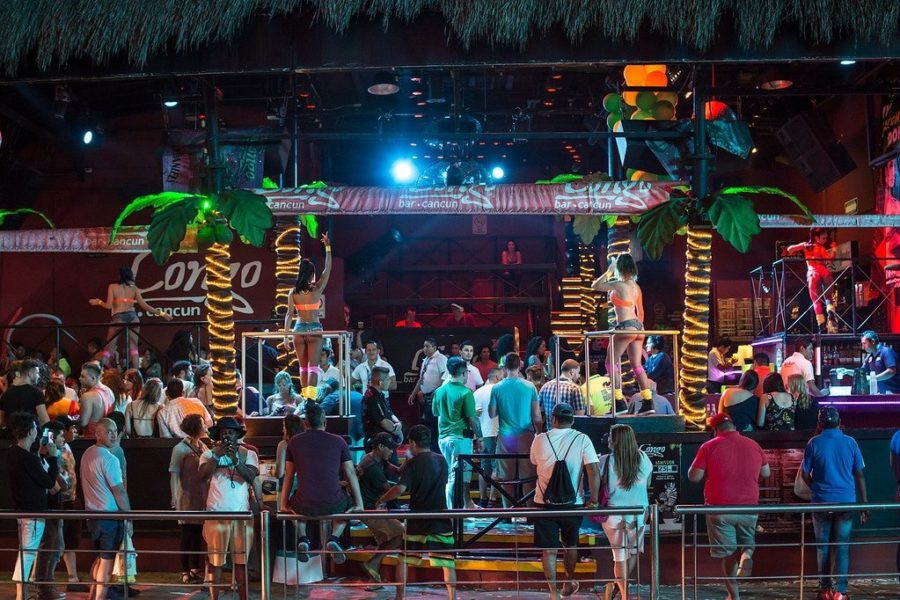 Nightlife Yucatan Peninsula Resort Town
Nightlife Yucatan Peninsula Resort Town
Craving vibrant nightlife and endless entertainment? Cancun offers a wide range of activities, from swimming with whale sharks to relaxing on the beach.
Answer: Yes, Cancun has a lot to offer. You can rent jet skis, take scuba diving courses, race Lamborghinis, or sail around at sunset with a drink in hand. The city is famous for its all-inclusive resorts and late-night parties.
However, if you skip the rest of the Yucatan Peninsula, you’ll miss out on the best experiences.
LGBTQ+ Consideration: Cancun is known for its lively gay scene, with several gay bars and clubs catering to the LGBTQ+ community. The city also hosts LGBTQ+ events.
11: Stroll Along La Quinta Avenida in Playa del Carmen
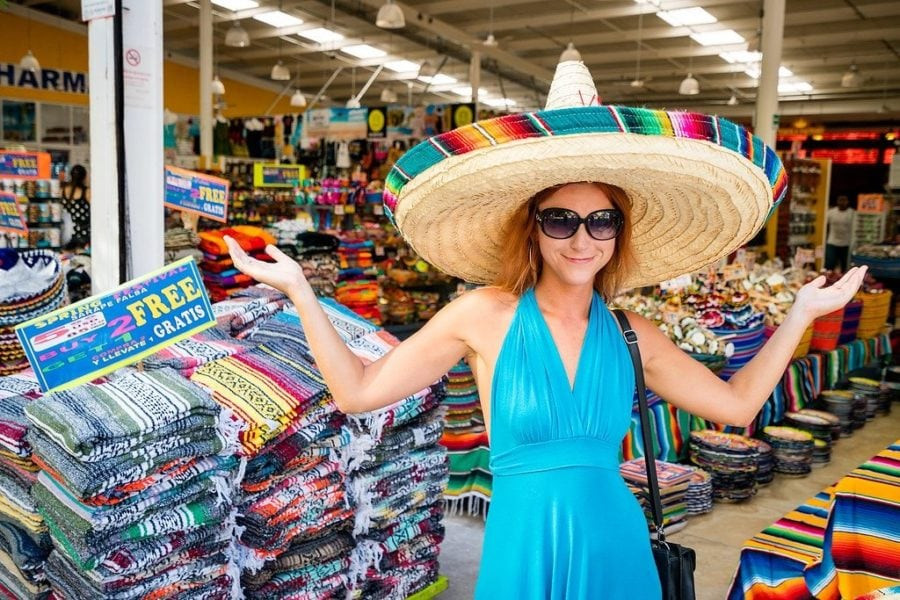 Playa del Carmen Yucatan Shopping District
Playa del Carmen Yucatan Shopping District
Interested in a pedestrian-friendly town with a vibrant atmosphere? Playa del Carmen, or “Playa,” is a major tourist spot along the Riviera Maya.
Answer: Yes, Playa del Carmen is less party-oriented than Cancun, with a pedestrian-friendly layout. La Quinta Avenida is lined with shops, beach bars, and restaurants.
LGBTQ+ Consideration: Playa del Carmen has a relaxed and inclusive vibe. Several LGBTQ+-friendly establishments are located along La Quinta Avenida.
12: Dive into the Waters Around Cozumel
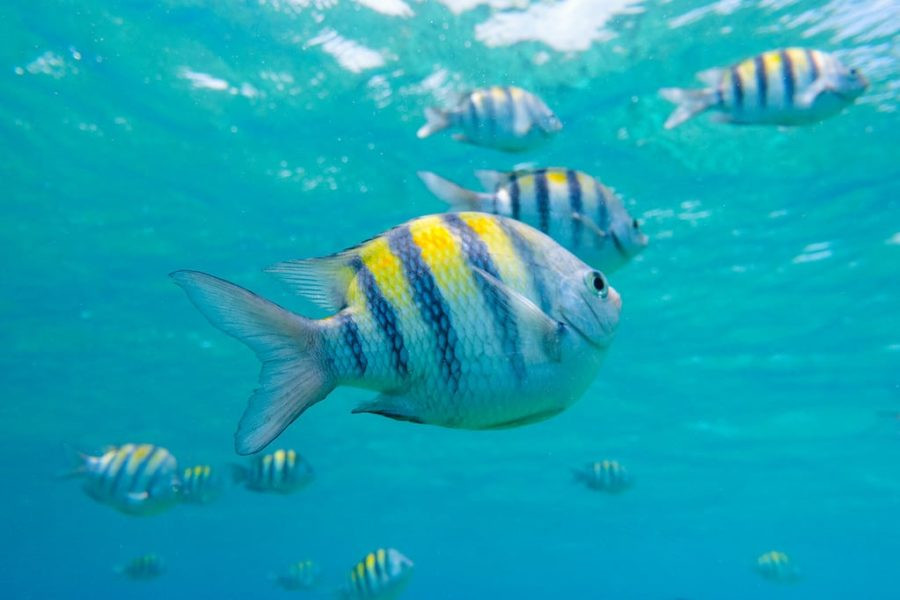 Scuba Diving Yucatan Peninsula Marine Life
Scuba Diving Yucatan Peninsula Marine Life
Looking for world-class scuba diving and snorkeling? Cozumel, a short ferry ride from Playa del Carmen, offers a different pace of life.
Answer: Yes, Cozumel is a premier destination for scuba diving and snorkeling, catering to all skill levels. Renting a car or moped and exploring the island’s beaches and bars is a great way to spend the day.
LGBTQ+ Consideration: Cozumel is a welcoming island with a growing LGBTQ+ presence. Several dive shops and accommodations cater to LGBTQ+ travelers.
13: Unwind in Tulum with Sunbathing and Yoga
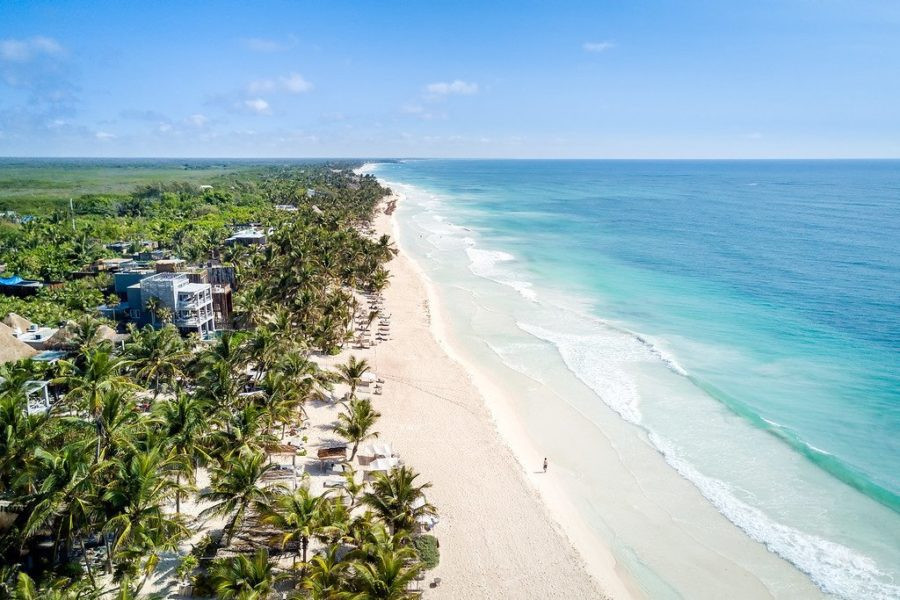 Tulum Coastline Mayan Ruins Beach
Tulum Coastline Mayan Ruins Beach
Seeking relaxation and natural beauty? Tulum has some of the best beaches in the Yucatan Peninsula.
Answer: Yes, Tulum originally served as a major port for the Mayan city of Cobá. Today, it’s filled with hippies, backpackers, and celebrities. The area is divided into the pueblo (local town), the Tulum Archaeological Site, and the playa, with fancy resorts, vegan restaurants, and yoga studios.
Tulum offers ample scuba diving, snorkeling, kite surfing, yoga, and cenote opportunities.
LGBTQ+ Consideration: Tulum has a bohemian vibe and is popular among LGBTQ+ travelers. The town boasts several gay-friendly resorts, restaurants, and yoga studios.
14: Kayak Through Bacalar Lagoon
 Bacalar Lagoon Kayaking Natural Beauty
Bacalar Lagoon Kayaking Natural Beauty
Interested in a serene lakeside town with a rich history? Bacalar was once overrun by pirates in the 17th century.
Answer: Yes, today Bacalar is a quiet, relaxing place with well-preserved fishermen’s houses. Renting a kayak for the day is a must. Paddling across the Lagoon of Seven Colors, you’ll see how different depths and ground soils create a multi-hued appearance.
LGBTQ+ Consideration: Bacalar is a peaceful and inclusive destination. Its natural beauty and laid-back atmosphere make it a great choice for LGBTQ+ travelers seeking tranquility.
15: Experience Mexico’s Adventure Theme Parks
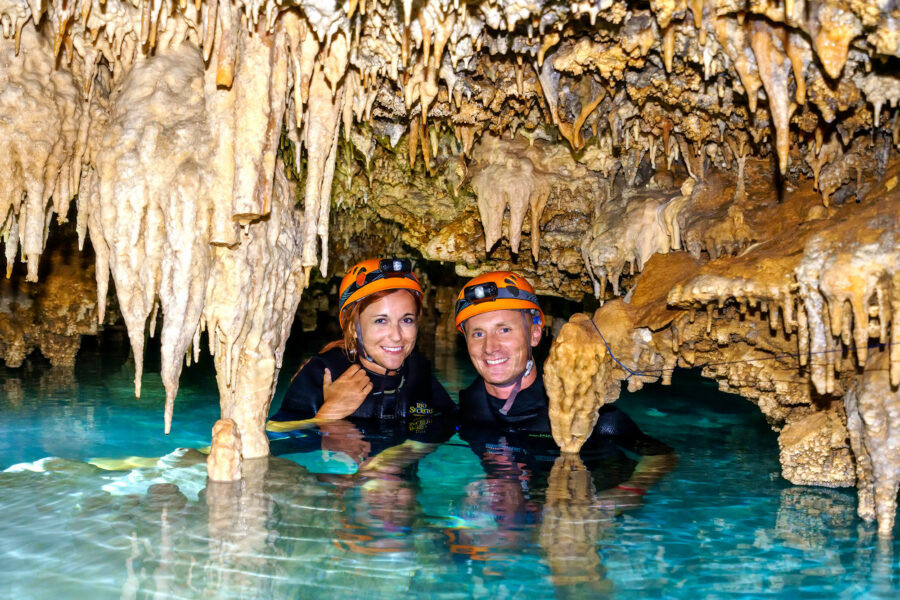 Mexico Theme Park Outdoor Adventure
Mexico Theme Park Outdoor Adventure
Looking for organized outdoor adventures? The Yucatan Peninsula, especially along the Riviera Maya, has a series of adventure theme parks.
Answer: Yes, popular parks like Xcaret, Xel Ha, Xplor, and Rio Secreto offer zip-lining, swimming in caves, driving ATVs, and snorkeling with colorful fish.
LGBTQ+ Consideration: These theme parks are generally inclusive and offer a fun day out for LGBTQ+ travelers.
Is the Yucatan Peninsula Safe for LGBTQ+ Travelers?
Answer: Yes, the Yucatan Peninsula is generally considered safe for LGBTQ+ travelers. Local governments have worked to keep major tourist areas crime-free.
While petty crime can be an issue in touristy towns like Cancun and Playa del Carmen, serious cartel violence usually doesn’t target tourists.
Safety Tips for LGBTQ+ Travelers in Yucatan
- Be aware of your surroundings, especially at night.
- Avoid public displays of affection in more conservative areas.
- Stick to well-lit and populated areas.
- Use reputable transportation services.
- Trust your instincts.
How to Get Around the Yucatan Peninsula
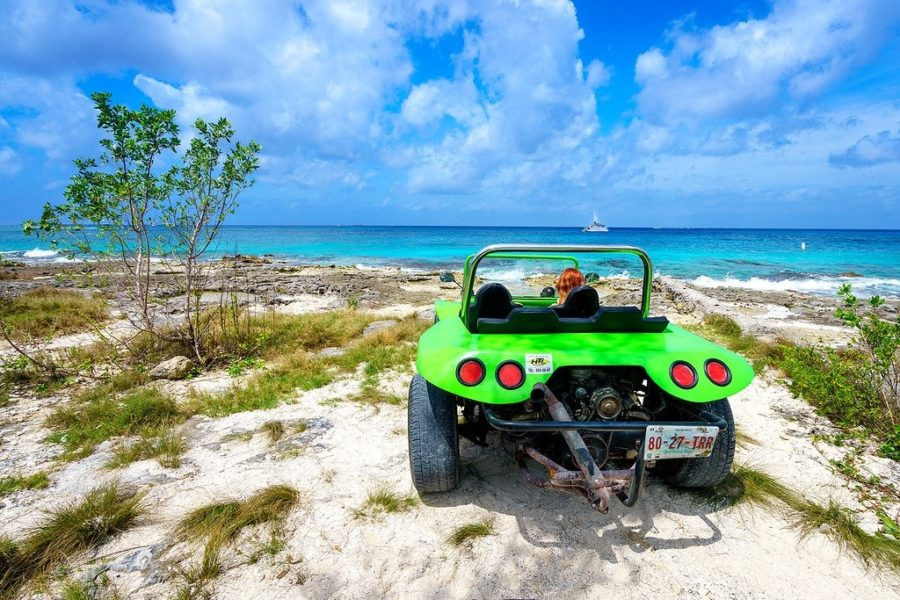 Yucatan Peninsula Transportation Options
Yucatan Peninsula Transportation Options
Answer: The Yucatan Peninsula offers several transportation options:
Rental Car
Renting a car provides the best flexibility for exploring remote attractions. Discover Cars searches both local and international car rental companies to find the best prices.
Mayan Train
The Tren Maya connects Cancun to Palenque, stopping at scenic destinations.
Local Bus
Mexico’s ADO Bus System is efficient, except in remote areas. Colectivos, or shared transportation, are also available.
Where to Stay in the Yucatan Peninsula
The Yucatan Peninsula offers diverse accommodation options, from budget hostels to luxury resorts.
Best Hotels in Cancun
Luxury
Midrange
Budget
Best Hotels in Playa del Carmen
Luxury
Midrange
Budget
Best Hotels in Tulum
Luxury
Midrange
Budget
LGBTQ+ Friendly Accommodations
- Cancun: Temptation Cancun Resort (clothing-optional, adults-only)
- Playa del Carmen: Thompson Playa del Carmen (stylish and inclusive)
- Tulum: Be Tulum Beach & Spa Resort (eco-chic and welcoming)
Best Time to Visit the Yucatan Peninsula
Answer: Plan your visit between late October and early April for clear skies and bearable temperatures. The busy season runs from December through March, when snowbirds escape winter.
Weather Considerations
- Dry Season (November to April): Ideal for outdoor activities and exploring ruins.
- Wet Season (May to October): Expect higher humidity and occasional rain.
- Hurricane Season (June to November): Monitor weather forecasts and be prepared for potential disruptions.
Top LGBTQ+ Events in Yucatan
- Cancun Pride (June): A week-long celebration with parades, parties, and cultural events.
- Valladolid Pride (May): A smaller, more intimate pride celebration in the colonial city.
- Arena Festival (Playa del Carmen, January/February): A major electronic music festival catering to the LGBTQ+ community.
LGBTQ+ Resources in Yucatan
- GayMexico.net: Your go-to source for LGBTQ+ travel information in Mexico.
- Local LGBTQ+ organizations: Reach out for community support and local insights.
- Online forums and social media groups: Connect with other LGBTQ+ travelers for tips and recommendations.
FAQ: What To Do In Yucatan Mexico
1. Is Yucatan Mexico safe for LGBTQ+ tourists?
Yes, Yucatan is generally safe. Tourist areas are well-policed, but it’s wise to be discreet in public displays of affection, especially in smaller towns.
2. What are the must-see attractions in Yucatan for gay travelers?
Chichen Itza, cenotes, and the beaches of Tulum are must-sees. Cities like Merida and Valladolid offer cultural experiences and growing LGBTQ+ scenes.
3. Are there gay-specific venues in Yucatan?
Cancun and Playa del Carmen have established gay scenes with bars and clubs. Merida also has a growing number of LGBTQ+-friendly establishments.
4. What is the best way to get around Yucatan?
Renting a car offers the most flexibility, but the ADO bus system is efficient for major routes. The Mayan Train is a new option for connecting key destinations.
5. What should I pack for a trip to Yucatan?
Lightweight clothing, swimwear, sunscreen, insect repellent, and comfortable shoes for exploring ruins and cenotes.
6. What is the local currency and where can I exchange money?
The local currency is the Mexican Peso (MXN). Exchange money at banks or ATMs for the best rates. Credit cards are widely accepted in tourist areas.
7. Do I need to speak Spanish to travel in Yucatan?
While Spanish is the official language, English is widely spoken in tourist areas. Learning basic Spanish phrases can enhance your experience.
8. What are some cultural norms to be aware of in Yucatan?
Respect for elders, conservative values in rural areas, and punctuality are valued. Dress modestly when visiting religious sites.
9. Are there any health precautions I should take?
Stay hydrated, use mosquito repellent, and avoid drinking tap water. Consult your doctor about necessary vaccinations and health advice.
10. How can I find LGBTQ+-friendly accommodations in Yucatan?
Use online travel platforms and search for hotels with “LGBTQ+ friendly” in their descriptions. Check reviews from other LGBTQ+ travelers for insights.
Your Dream Yucatan Adventure Awaits
With its blend of history, culture, and natural beauty, the Yucatan Peninsula offers an unforgettable experience for every traveler. At gaymexico.net, we’re dedicated to providing you with the most current, trustworthy, and community-driven information to make your trip extraordinary. Are you ready to explore the wonders of Yucatan, connect with fellow LGBTQ+ travelers, and create memories that will last a lifetime?
Discover more, plan your adventure, and connect with the community at gaymexico.net today!
Address: 3255 Wilshire Blvd, Los Angeles, CA 90010, United States
Phone: +1 (213) 380-2177
Website: gaymexico.net